Fleurs du Mal Magazine


Or see the index
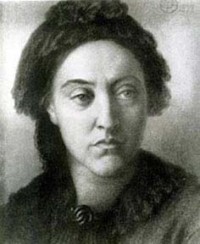
Spring
Frost-locked all the winter,
Seeds, and roots, and stones of fruits,
What shall make their sap ascend
That they may put forth shoots?
Tips of tender green,
Leaf, or blade, or sheath;
Telling of the hidden life
That breaks forth underneath,
Life nursed in its grave by Death.
Blows the thaw-wind pleasantly,
Drips the soaking rain,
By fits looks down the waking sun:
Young grass springs on the plain;
Young leaves clothe early hedgerow trees;
Seeds, and roots, and stones of fruits,
Swollen with sap put forth their shoots;
Curled-headed ferns sprout in the lane;
Birds sing and pair again.
There is no time like Spring,
When life’s alive in everything,
Before new nestlings sing,
Before cleft swallows speed their journey back
Along the trackless track–
God guides their wing,
He spreads their table that they nothing lack,–
Before the daisy grows a common flower,
Before the sun has power
To scorch the world up in his noontide hour.
There is no time like Spring,
Like Spring that passes by;
There is no life like Spring-life born to die,–
Piercing the sod,
Clothing the uncouth clod,
Hatched in the nest,
Fledged on the windy bough,
Strong on the wing:
There is no time like Spring that passes by,
Now newly born, and now
Hastening to die.
Christina Georgina Rossetti
(1830 – 1894)
Spring
• fleursdumal.nl magazine
More in: 4SEASONS#Spring, Archive Q-R, Archive Q-R, Rossetti, Christina
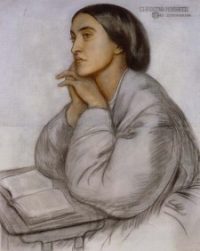
A Wintry Sonnet
A robin said: The Spring will never come,
And I shall never care to build again.
A Rosebush said: These frosts are wearisome,
My sap will never stir for sun or rain.
The half Moon said: These nights are fogged and slow,
I neither care to wax nor care to wane.
The Ocean said: I thirst from long ago,
Because earth’s rivers cannot fill the main.
When springtime came, red Robin built a nest,
And trilled a lover’s song in sheer delight.
Gray hoarfrost vanished, and the Rose with might
Clothed her in leaves and buds of crimson core.
The dim Moon brightened. Ocean sunned his crest,
Dimpled his blue, – yet thirsted evermore.
Christina Georgina Rossetti
(1830 – 1894)
A Wintry Sonnet
• fleursdumal.nl magazine
More in: 4SEASONS#Winter, Archive Q-R, Archive Q-R, Rossetti, Christina
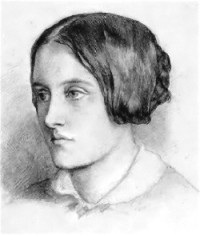
Winter: My Secret
I tell my secret? No indeed, not I:
Perhaps some day, who knows?
But not to-day; it froze, and blows, and snows,
And you’re too curious: fie!
You want to hear it? well:
Only, my secret’s mine, and I won’t tell.
Or, after all, perhaps there’s none:
Suppose there is no secret after all,
But only just my fun.
To-day’s a nipping day, a biting day;
In which one wants a shawl,
A veil, a cloak, and other wraps:
I cannot ope to every one who taps,
And let the draughts come whistling through my hall;
Come bounding and surrounding me,
Come buffeting, astounding me,
Nipping and clipping through my wraps and all.
I wear my mask for warmth: who ever shows
His nose to Russian snows
To be pecked at by every wind that blows?
You would not peck? I thank you for good-will,
Believe, but leave that truth untested still.
Spring’s an expansive time: yet I don’t trust
March with its peck of dust,
Nor April with its rainbow-crowned brief showers,
Nor even May, whose flowers
One frost may wither through the sunless hours.
Perhaps some languid summer day,
When drowsy birds sing less and less,
And golden fruit is ripening to excess,
If there’s not too much sun nor too much cloud,
And the warm wind is neither still nor loud,
Perhaps my secret I may say,
Or you may guess.
Christina Georgina Rossetti
(1830 – 1894)
Winter: My Secret
• fleursdumal.nl magazine
More in: 4SEASONS#Winter, Archive Q-R, Archive Q-R, Rossetti, Christina
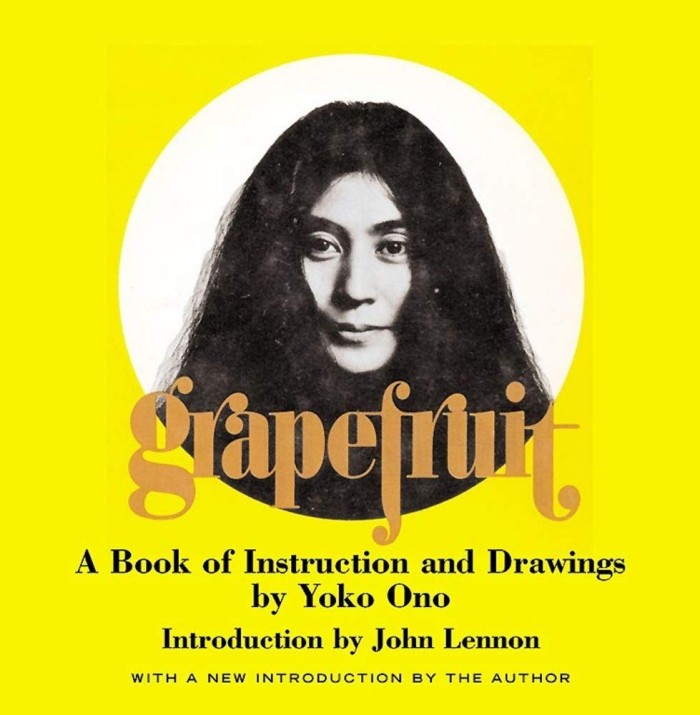
TATE MODERN LONDON
Yoko Ono Music of the Mind
15 February – 1 September 2024
Delve into the powerful, participatory work of artist and activist Yoko Ono
Yoko Ono (1933) is a leading figure in conceptual and performance art, experimental film and music. Developing her practice in America, Japan and the UK, she is renowned for her activism, work for world peace, and environmental campaigns. Ideas are central to her art, often expressed in poetic, humorous and radical ways.
Spanning more than seven decades, the exhibition focuses on key moments in Ono’s career, including her years in London from 1966 to 1971, where she met John Lennon (1940 – 1980).
The show explores some of Ono’s most talked about artworks and performances, from Cut Piece (1964), where people were invited to cut off her clothing, to her banned Film No.4 (Bottoms) (1966-67) which she created as a ‘petition for peace’.
Alongside her early performances, works on paper, objects, and music, audiences will discover a selection of her activist projects such as PEACE is POWER and Wish Tree, where visitors can contribute personal wishes for peace.
Through her instructions and event scores, Ono invites visitors to take part in both simple acts of the imagination and active encounters with her works.
The exhibition is organised by Tate Modern, London in collaboration with Kunstsammlung Nordrhein-Westfalen, Düsseldorf
Y O K O O N O & J O H N L E N N O N
• fleursdumal.nl magazine
More in: #Editors Choice Archiv, - Book Lovers, - Book Stories, Archive K-L, Archive O-P, Archive Q-R, Art Criticism, Exhibition Archive, FDM in London, Pax for peace, Performing arts, Yoko Ono & John Lennon
A poetic evaluation of what it means to grow up a girl, and how this intersects with disability/visual impairment.
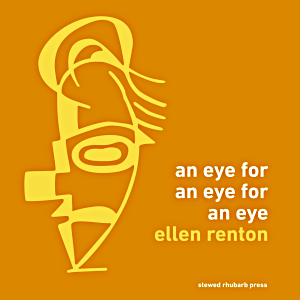 An Eye For An Eye For An Eye explores what it means to grow up a girl, and how this experience intersects with disability and visual impairment.
An Eye For An Eye For An Eye explores what it means to grow up a girl, and how this experience intersects with disability and visual impairment.
These poems concern themselves with looking: looking back over a childhood, looking again at what’s in front of us, and looking forward to possible futures. They visit girlhood and myth, blindness and friendship. They celebrate the freedom, shame, and awkwardness of coming to terms with our own bodies, and they ask what it means to look different and see differently.
Ellen Renton is a poet, performer, and theatre maker from Edinburgh whose writing has been published in a number of literary magazines. She she has performed at venues and festivals around the UK, is a co-founder of In The Works spoken word theatre company, and is the creator of the one woman poetry show Within Sight.
(…) They say, you are so brave and persistent.
You say thank you and ask for help.
They say, what do you think of this cosy lining?
You ask for help.
They say, I admire you, so brave and so persistent.
(fragment poem Ellen Renton)
An Eye For An Eye For An Eye
by Ellen Renton
Pamphlet For Stewed Rhubarb Press,
2021
£5.99
• fleursdumal.nl magazine
More in: #Editors Choice Archiv, - Book News, - Bookstores, Archive Q-R, Archive Q-R
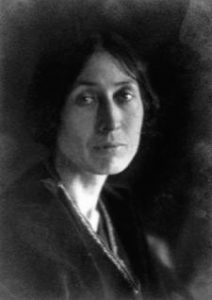
The Everlasting Return
It is dark… so dark, I remember the sun on Chios…
It is still… so still, I hear the beat of our paddles on the Aegean…
Ten times we had watched the moon
Rise like a thin white virgin out of the waters
And round into a full maternity…
For thrice ten moons we had touched no flesh
Save the man flesh on either hand
That was black and bitter and salt and scaled by the sea.
The Athenian boy sat on my left…
His hair was yellow as corn steeped in wine…
And on my right was Phildar the Carthaginian,
Grinning Phildar
With his mouth pulled taut as by reins from his black gapped teeth.
Many a whip had coiled about him
And his shoulders were rutted deep as wet ground under chariot wheels,
And his skin was red and tough as a bull’s hide cured in the sun.
He did not sing like the other slaves,
But when a big wind came up he screamed with it.
And always he looked out to sea,
Save when he tore at his fish ends
Or spat across me at the Greek boy, whose mouth was red and apart like an opened fruit.
We had rowed from dawn and the green galley hard at our stern.
She was green and squat and skulked close to the sea.
All day the tish of their paddles had tickled our ears,
And when night came on
And little naked stars dabbled in the water
And half the crouching moon
Slid over the silver belly of the sea thick-scaled with light,
We heard them singing at their oars…
We who had no breath for song.
There was no sound in our boat
Save the clingle of wrist chains
And the sobbing of the young Greek.
I cursed him that his hair blew in my mouth, tasting salt of the sea…
I cursed him that his oar kept ill time…
When he looked at me I cursed him again,
That his eyes were soft as a woman’s.
How long… since their last shell gouged our batteries?
How long… since we rose at aim with a sleuth moon astern?
(It was the damned green moon that nosed us out…
The moon that flushed our periscope till it shone like a silver flame…)
They loosed each man’s right hand
As the galley spent on our decks…
And amazed and bloodied we reared half up
And fought askew with the left hand shackled…
But a zigzag fire leapt in our sockets
And knotted our thews like string…
Our thews grown stiff as a crooked spine that would not straighten…
How long… since our gauges fell
And the sea shoved us under?
It is dark… so dark…
Darkness presses hairy-hot
Where three make crowded company…
And the rank steel smells….
It is still… so still…
I seem to hear the wind
On the dimpled face of the water fathoms above…
It was still… so still… we three that were left alive
Stared in each other’s faces…
But three make bitter company at one man’s bread…
And our hate grew sharp and bright as the moon’s edge in the water.
One grinned with his mouth awry from the long gapped teeth…
And one shivered and whined like a gull as the waves pawed us over…
But one struck with his hate in his hand…
After that I remember
Only the dead men’s oars that flapped in the sea…
The dead men’s oars that rattled and clicked like idiots’ tongues.
It is still… so still, with the jargon of engines quiet.
We three awaiting the crunch of the sea
Reach our hands in the dark and touch each other’s faces…
We three sheathing hate in our hearts…
But when hate shall have made its circuit,
Our bones will be loving company
Here in the sea’s den…
And one whimpers and cries on his God
And one sits sullenly
But both draw away from me…
For I am the pyre their memories burn on…
Like black flames leaping
Our fiery gestures light the walled-in darkness of the sea…
The sea that kneels above us…
And makes no sign.
Lola Ridge
(1873-1941)
The Everlasting Return
• fleursdumal.nl magazine
More in: Archive Q-R, Archive Q-R, Ridge, Lola
The hidden history of a vulnerable gay man whose life and death were turned into tabloid fodder.
In the early 1990s, eight people living in a small conservative Florida town alleged that Dr. David Acer, their dentist, infected them with HIV. David’s gayness, along with his sickly appearance from his own AIDS-related illness, made him the perfect scapegoat and victim of mob mentality.
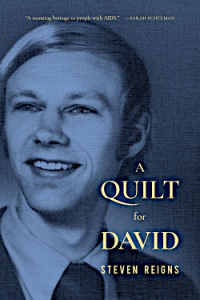 In these early years of the AIDS epidemic, when transmission was little understood, and homophobia rampant, people like David were villainized. Accuser Kimberly Bergalis landed a People magazine cover story, while others went on talk shows and made front page news.
In these early years of the AIDS epidemic, when transmission was little understood, and homophobia rampant, people like David were villainized. Accuser Kimberly Bergalis landed a People magazine cover story, while others went on talk shows and made front page news.
With a poet’s eulogistic and psychological intensity, Steven Reigns recovers the life and death of this man who also stands in for so many lives destroyed not only by HIV, but a diseased society that used stigma against the most vulnerable.
It’s impossible not to make connections between this story and how the twenty-first century pandemic has also been defined by medical misinformation and cultural bias.
Inspired by years of investigative research into the lives of David and those who denounced him, Reigns has stitched together a hauntingly poetic narrative that retraces an American history, questioning the fervor of his accusers, and recuperating a gay life previously shrouded in secrecy and shame.
Steven Reigns is a Los Angeles-based poet and educator and was appointed the first Poet Laureate of West Hollywood. Alongside over a dozen chapbooks, he has published the collections Inheritance and Your Dead Body is My Welcome Mat. Reigns holds a BA in Creative Writing from the University of South Florida, a Master of Clinical Psychology from Antioch University, and is a fourteen-time recipient of The Los Angeles County’s Department of Cultural Affairs’ Artist in Residency Grant. He edited My Life is Poetry, showcasing his students’ work from the first-ever autobiographical poetry workshop for LGBT seniors. Reigns has lectured and taught writing workshops around the country to LGBT youth and people living with HIV. Currently he is touring The Gay Rub, an exhibition of rubbings from LGBT landmarks, facilitates the monthly Lambda Lit Book Club, and is at work on a new collection of poetry.
A Quilt for David Paperback
by Steven Reigns (Author)
2021
Language: English
Publisher: City Lights Publishers
Paperback
128 pages
ISBN-10: 0872868818
ISBN-13: 978-0872868816
$11.12
• fleursdumal.nl magazine
More in: #Editors Choice Archiv, - Book News, - Bookstores, AIDS, Archive Q-R, Archive Q-R, LGBT+ (lhbt+)
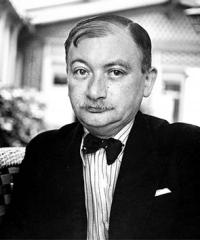
Lied des Todes
Alles Leben ist Lüge,
Wahr bin nur ich allein,
Finde nun, Herz, Dein Genüge,
Schlafe, schlafe nun ein.
Ich war Dein erster Begleiter
Und werde Dein letzter sein,
Die Menschen eilten weiter,
Ich liess dich nie allein.
Sie alle kränkten dich stets aufs neu,
Ich stand nur still beiseite,
Sie gingen alle, ich blieb treu,
Ergib Dich mir nun heute.
Lieb mich und meine sanfte Macht,
Du bist mir ja bestimmt.
Das Leben hat dich müd gemacht,
Schlaf ein, schlaf ein, mein Kind.
Ich und Deine Mutter lauschten
Deines Herzens erstem Schlag,
Blut und Blut zusammenrauschten,
Herz an Herz gebettet lag.
Sie war Anfang, ich bin Ende
Und dazwischen littest Du.
Gib Dich nun in meine Hände,
Finde, Seele, Deine Ruh.
Joseph Roth
(1894 – 1939)
Lied des Todes
• fleursdumal.nl magazine
More in: Archive Q-R, Archive Q-R, Joseph Roth
major exhibition devoted to
the radical Rossetti generation
in Tate Britain
from 6 April until 24 September 2023
This exhibition follows the romance and radicalism of the Rossetti generation, through and beyond the Pre-Raphaelite years: Dante Gabriel, Christina and Elizabeth (née Siddal). Visitors will get to experience world-renowned works from their boundary-pushing careers.
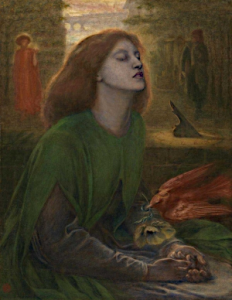 The Rossettis’ approach to art, love and lifestyles are considered revolutionary, and this will be thoroughly explored in an immersive show, using spoken poetry, drawings, paintings, photography, design and more.
The Rossettis’ approach to art, love and lifestyles are considered revolutionary, and this will be thoroughly explored in an immersive show, using spoken poetry, drawings, paintings, photography, design and more.
This is the first retrospective of Dante Gabriel Rossetti at Tate and the largest exhibition of his iconic pictures in two decades.
It will also be the most comprehensive exhibition of Elizabeth Siddal’s work for 30 years, featuring rare surviving watercolours and important drawings.
The Rossettis will take a fresh look at the fascinating myths surrounding the unconventional relationships between Dante Gabriel Rossetti, Elizabeth Siddal, Fanny Cornforth and Jane Morris.
The Rossettis exhibition book
by Carol Jacobi and James Finch
hardback
Dimensions 27.5 x 23 cm
Material FSC certified paper and card
ISBN 9781849768412
£40
This visually captivating hardback exhibition book is devoted to the radical Rossetti generation.
Explore the Rossettis’ revolutionary approach to art, love and lifestyles through a collection of thematic essays containing fresh and surprising research, accompanied by beautiful Pre-Raphaelite illustrations.
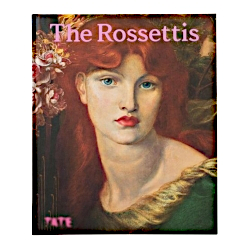 The Rossettis takes a fresh look at the fascinating myths surrounding the unconventional relationships between Dante Gabriel Rossetti, Elizabeth Siddal, Fanny Cornforth and Jane Morris. Featuring artworks and writings by Dante Gabriel, Christina and Elizabeth (née Siddal), the book distinguishes the Rossettis and foregrounds their countercultural roles.
The Rossettis takes a fresh look at the fascinating myths surrounding the unconventional relationships between Dante Gabriel Rossetti, Elizabeth Siddal, Fanny Cornforth and Jane Morris. Featuring artworks and writings by Dante Gabriel, Christina and Elizabeth (née Siddal), the book distinguishes the Rossettis and foregrounds their countercultural roles.
The catalogue accompanies the first retrospective of Dante Gabriel Rossetti at Tate and the largest exhibition of his iconic pictures in two decades, and what will also be the most comprehensive exhibition of Elizabeth Siddal’s work for 30 years, featuring rare surviving watercolours and important drawings.
The publication is edited by Carol Jacobi, Curator, British Art 1850—1915 at Tate and James Finch, Assistant Curator, Nineteenth Century Art at Tate. It features contributions by:
– Chiedza Mhondoro, Assistant Curator, Historic British Art at Tate – Dinah Roe, Reader in Nineteenth Century Literature at Oxford Brookes University – Glenda Youde, a writer and researcher based at University of York – Liz Prettejohn, Professor of Art History at University of York – Jan Marsh, a writer, curator and specialist in the Pre-Raphaelite period – Gursimran Oberoi, an associate teaching fellow at University of Surrey – Margaretta S. Frederick, the former Annette Woolard-Provine Curator of the Bancroft Collection of Pre-Raphaelite Art at Delaware Art Museum – Wendy Parkins, Professor of Victorian Literature and the Director of the Centre for Victorian Literature and Culture at the University of Kent
• fleursdumal.nl magazine
More in: *The Pre-Raphaelites Archive, - Book News, - Bookstores, Archive Q-R, Archive Q-R, Art & Literature News, Exhibition Archive, FDM in London, History of Britain, Illustrators, Illustration, Morris, William, Rossetti, Christina, Rossetti, Dante Gabriel, Siddal, Lizzy

Tod im Frühling
Ein Professor, fromm und tugendhaft,
war exorbitant normal im Winter;
zur Erhaltung deutscher Manneskraft
schlief er stets mit einem Werk von Dinter;
morgens steckte er ins Stahlbad Glied um Glied,
trieb am Reck dann Weltkriegsvorbereitung,
und, fürs arisch-reine Vaterland erglüht,
abonnierte er die »Deutsche Zeitung«.
Also lebte er zur Winterszeit. –
Doch beim ersten Lied der Nachtigallen
machte er sein Teleskop bereit,
um des Nachts durch das Gebüsch zu wallen;
Minne glühte auch in seiner Brust,
wenn er eine Wade wo erblickte;
und es war sein Wille groß wie seine Lust – –
nur, daß letztere ihm niemals glückte.
Mit der Blendlaterne spähte er
nach den unverschämten Gartenbänken,
zu den deutschen Göttern flehte er,
dieses Mobiliar der Juden zu versenken;
aber Unzucht blieb, kein Rächer kam,
und vergebens betete der Keusche,
während er, moral-geplagt, vernahm
außereheliche Nachtgeräusche.
Bald begannen Nase, Aug’ und Ohr
und der sechste Sinn sich auch zu schämen – –
außer sich geriet der Professor,
und er mußte endlich Anstoß nehmen;
unter einem weißen Fliederstrauch
tat er’s, ward erregt – und fand sein Ende . . .
Streng und sittlich flog sein letzter Hauch
wie ein keuscher Fluch durch das Gelände . . .
Joseph Roth
(1894 – 1939)
Tod im Frühling
Lachen links – 9. 5· 1924
• fleursdumal.nl magazine
More in: Archive Q-R, Archive Q-R, Joseph Roth, Natural history
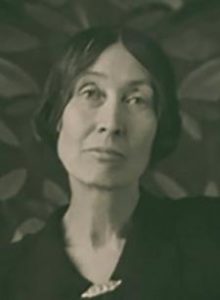
Sun-Up
(Shadows over a cradle…
fire-light craning….
A hand
throws something in the fire
and a smaller hand
runs into the flame and out again,
singed and empty….
Shadows
settling over a cradle…
two hands
and a fire.)
I
CELIA
Cherry, cherry,
glowing on the hearth,
bright red cherry….
When you try to pick up cherry
Celia’s shriek
sticks in you like a pin.
…
When God throws hailstones
you cuddle in Celia’s shawl
and press your feet on her belly
high up like a stool.
When Celia makes umbrella of her hand.
Rain falls through
big pink spokes of her fingers.
When wind blows Celia’s gown up off her legs
she runs under pillars of the bank –
great round pillars of the bank
have on white stockings too.
…
Celia says my father
will bring me a golden bowl.
When I think of my father
I cannot see him
for the big yellow bowl
like the moon with two handles
he carries in front of him.
…
Grandpa, grandpa…
(Light all about you…
ginger… pouring out of green jars…)
You don’t believe he has gone away and left his great coat…
so you pretend… you see his face up in the ceiling.
When you clap your hands and cry, grandpa, grandpa, grandpa,
Celia crosses herself.
…
It isn’t a dream….
It comes again and again….
You hear ivy crying on steeples
the flames haven’t caught yet
and images screaming
when they see red light on the lilies
on the stained glass window of St. Joseph.
The girl with the black eyes holds you tight,
and you run… and run
past the wild, wild towers…
and trees in the gardens tugging at their feet
and little frightened dolls
shut up in the shops
crying… and crying… because no one stops…
you spin like a penny thrown out in the street.
Then the man clutches her by the hair….
He always clutches her by the hair….
His eyes stick out like spears.
You see her pulled-back face
and her black, black eyes
lit up by the glare….
Then everything goes out.
Please God, don’t let me dream any more
of the girl with the black, black eyes.
…
Celia’s shadow rocks and rocks…
and mama’s eyes stare out of the pillow
as though she had gone away
and the night had come in her place
as it comes in empty rooms…
you can’t bear it –
the night threshing about
and lashing its tail on its sides
as bold as a wolf that isn’t afraid –
and you scream at her face, that is white as a stone on a grave
and pull it around to the light,
till the night draws backward… the night that walks alone
and goes away without end.
Mama says, I am cold, Betty, and shivers.
Celia tucks the quilt about her feet,
but I run for my little red cloak
because red is hot like fire.
…
I wish Celia
could see the sea climb up on the sky
and slide off again…
…Celia saying
I’d beg the world with you….
Celia… holding on to the cab…
hands wrenched away…
wind in the masts… like Celia crying….
Celia never minded if you slapped her
when the comb made your hairs ache,
but though you rub your cheek against mama’s hand
she has not said darling since….
Now I will slap her again….
I will bite her hand till it bleeds.
It is cool by the port hole.
The wet rags of the wind
flap in your face.
II
THE ALLEY
Because you are four years old
the candle is all dressed up in a new frill.
And stars nod to you through the hole in the curtain,
(except the big stiff planets
too fat to move about much,)
and you curtsey back to the stars
when no one is looking.
You feel sorry for the poor wooden chair
that knows it isn’t nice to sit on,
and no one is sad but mama.
You don’t like mama to be sad
when you are four years old,
so you pretend
you like the bitter gold-pale tea –
you pretend
if you don’t drink it up pretty quick
a little gold-fish
will think it is a pond
and come and get born in it.
…
It’s hot in our street
and the breeze is a dirty little broom
that sweeps dust into our room
and bits of paper out of the alley.
You are not let to play
with the children in the alley
But you must be very polite –
so you pass them and say good day
and when they fling banana skins
you fling them back again.
…
There is no one to play with
and the flies on the window
buzz and buzz…
…you can pull out their legs
and stick pins in their bodies
but still they buzz…
and mama says:
When Nero was a little boy
he caught flies on his mama’s window
and pulled out their legs
and stuck pins in their bodies
and nobody loved him.
Buzz, blue-bellied flies –
buzz, nasty black wheel
of mama’s machine –
you are the biggest fly of all –
you have the loudest buzz.
I hear you at dawn before the locusts.
But I like the picture of the Flood
and the little babies getting drowned….
If I were there I would save them,
but as I can’t save them
I like to watch them
getting drowned.
…
When mama buys of Ling Ho,
he smiles very wide
and picks her the largest loquots.
The greens-man gave her a cabbage
and she held it against her black bodice
and said what a beautiful green it was
and put it on the table
as though it had been a flower.
But next day we boiled and ate it with salt.
It was our dinner.
…
Christmas day
I found Janie on my pillow.
Janie is made of rubber.
Her red and blue jacket won’t come off.
Christmas dinner was green and white
chicken and lettuce and peas
and drops of oil on the salad
smiley and full of light
like the gold on the lady’s teeth.
But mama said politely
Thank you, we are dining out.
She wouldn’t let you take one pea
to put in the hole where the whistle was
at the back of Janie’s head,
so Janie should have some dinner
So you went to the park with biscuits
and black tea in a bottle.
…
You feel very sad
when you climb on the fence
to watch mama out of sight.
The women in the alley
poke their heads out of doorways
and watch her too.
You know her
by the way she holds her shoulders
till she is only a speck
in a chain of specks –
till she is swallowed up.
But suppose
that day after day
you were to watch for her face
and it didn’t come back?
Suppose
it were to drop out of the string of white faces
like the pearl out of my chain
I never found again?
…
Mabel minds you while mama is out,
she washes while she sings
Three blind mice!
they all run away from the farmer’s wife
who cut off their tails
with a carving knife –
Wind blows out Mabel’s sheets,
way you blow in a bag before you burst it.
Wind has a soapy smell.
It’s heavier’n sun
that lies all over you without any weight
and makes you feel happy
and crinkly like bubbling water.
There’s no sun on the empty house –
sly-looking house –
you can’t see in its windows
that watch you out of their corners.
Perhaps there’s a big spider there
spinning gray threads over the windows
till they look like dead people’s faces….
Jimmie says:
Jimmie’s hair is white as a white mouse.
His lashes are gold as mama’s wedding ring
and his mouth feels cool and smooth
like a flower wet with rain.
You wouldn’t believe Jimmie was different…
till he showed you….
…
Blind wet sheets
flapping on the lines…
sun in your eyes,
dark gold sun
full of little black spots,
you have to blink and blink…
round eyes of Jimmie….
Jimmie’s blue jumper…
blue shadow of wall…
all the world holding still
as when a clock stops…
streets still… people still…
no streets… no people…
only sky and wall…
sun glaring bright as God
down at you and Jimmie…
shadow like a purple cloth
trailing off the wall…
Wild wet sheets
flapping in the wind…
big slippered feet flapping too…
big-balloon-face
rushing up the alley…
houses closing up again…
windows looking round…
… Mabel pulls you in the gate and shakes you
and tells you not to tell your mama…
And you wonder
if God has spoiled Jimmie.
III
MAMA
Mama’s face
is smooth and pale as tea-rose leaves.
That ivory oval of aunt Gem
you sucked the miniature off
had black black hair like mama.
…
Pit-it-ty-pat,
Mama walks so fast,
street lamps jig
without bending a leg…
lights in the windows
play twinkling tunes
on crimson and blue
bottles like bubbles
big as balloons…
Faster and faster…
and pink light spurts
over cakes doing polkas
in little white shirts,
with cake-princesses
in flounced white skirts.
Pit-pat –
mama walks slower…
slower and… slower…
Eyes… lamps… stars…
acres and acres of stars…
bells… and sleepily
flapping feet….
You’re glad mama walks slow.
It’s nice to be carried along
up high near the stars
that look at you with a grave, great look.
…
Every night
mama sings you to sleep.
When she sings, O for the light of thine eyes Dolores,
there’s a castle on a cliff
and the sea roars like lions.
It leaps at the castle
and the cliff knocks it down
but always the sea
shakes its flattened head
and gets up again.
The castle has no roof
so the rain spins silvery webs in it,
and Dolores’ face
floats dim and beautiful
the way flowers do when they are drowned.
Step by white step
she goes up the castle stairs,
but the stair goes up into the sky
and the sky keeps going up too,
and none of them ever get there.
When mama sings Ba ba black sheep,
the stars seem to shine through her voice
so everything has to be still,
and when she has finished singing
her song goes up off the earth,
higher and higher…
till it is only as big as a tiny silver bird
with nothing but moonlight around it.
IV
BETTY
You can see the sandhills from our new room.
Butterflies
live in the sandhills
and lizards
and centipedes.
If you keep very still
lizards will think you a stone
and run over your lap.
Butterflies’ liveries
are scarlet and black.
They drive chariots in air.
People in the chariots
are pale as dew –
you can see right through them –
but the chariots
are made of gold of the sun.
They go up to heaven
and never catch fire.
There are green centipedes
and brown centipedes
and black centipedes,
because green and brown and black
are the colors in hell’s flag.
Centipedes
have hundreds of feet
because it is so far from hell
to come up for air.
Centipedes
do not hurry.
They are waiting for the last day
when they will creep over the false prophets
who will have their hands tied.
…
Night calls to the sandhills
and gathers them under her.
she pushes away cities
because their sharp lights
hurt her soft breast.
Even candles make a sore place
when they stick in the night.
There are things in the sandhills
that no one knows about…
they come out at dark when the young snakes play
and tell each other secrets
in the deaf logs.
Sometimes… before rain…
when the stars have gone inside…
the night comes close to your window
and sniffs at the light….
But you must not run away –
you must keep your face to the night
and walk backward.
…
When it rains
and you are pulling off flies’ legs…
mama lets you play houses
with Lizzie and Clara.
Because you are the Only One –
and because Only Ones have to live alone
while sisters stay together,
Lizzie and Clara
give you the dry house
and take the one with the leaking roof.
Rain like curly hairpins
blows on Lizzie and Clara’s two heads
turned like one head –
two mouths
spread into one laugh.
Lizzie is saying:
why don’t you want to play –
when you feel you’d like to braid
the crinkled-silver rain
into a shining rope
to climb up… and up… and up… into the wet sky
and never see any one again.
Our gate doesn’t hang right.
It must have pawed at the wind
and gotten a kick
as the wind passed over.
The sitting sky
puffs out a gray smoke
and the wind makes a red-striped sound
blowing out straight,
but our gate drags its foot
and whines to itself on one hinge.
…
What do you think I’ve found –
two wee knickers of fairy brass,
or two gold sovereigns folded up
in a bit of green silk,
or two gold bugs
in little green shirts?
If you want to know,
you must walk tip-toe
so your feet just whisper in the grass –
you must carry them careful
and very proud,
for their stems bleed drops of milk –
but Lizzie and Clara shout in glee:
Pee-a-bed, pee-a-bed –
dandelions!
You look in the eyes of grown-up people
to see if they feel
the way you feel…
but they hide inside of themselves,
and so you do not find out.
Grown-up people say:
The stars are bright to-night,
but they do not say
what you are thinking about stars –
not even mama says what you are thinking about stars.
This makes you feel very lonely.
…
It’s strange about stars….
You have to be still when they look at you.
They push your song inside of you with their song.
Their long silvery rays
sink into you and do not hurt.
It is good to feel them resting on you
like great white birds…
and their shining whiteness
doesn’t burn like the sun –
it washes all over you
and makes you feel cleaner’n water.
…
My doll Janie has no waist
and her body is like a tub with feet on it.
Sometimes I beat her
but I always kiss her afterwards.
When I have kissed all the paint off her body
I shall tie a ribbon about it
so she shan’t look shabby.
But it must be blue –
it mustn’t be pink –
pink shows the dirt on her face
that won’t wash off.
…
I beat Janie
and beat her…
but still she smiled…
so I scratched her between the eyes with a pin.
Now she doesn’t love me anymore…
she scowls… and scowls…
though I’ve begged her to forgive me
and poured sugar in the hole at the back of her head.
…
Mama says Janie is a fairy doll
and she has forgiven me –
that she’s gone to the market
to buy me some sweets.
– Now she’s at the door
and a little bag tied to her neck –
I run to Janie
and kiss her all over….
Ah… she is still frowning.
I let the sweets drop on the floor –
mama
has told you a lie.
…
Chinaman
singing in street:
gleen ledd-ish-es, gleen ledd-ish-es –
hot sun
shining on your face –
it must be a new day.
But why aren’t you happy
if it’s a new day?
Because something has happened…
something sad and terrible….
Now I remember… it’s Janie.
Yesterday
I took Janie out
and tied my handkerchief over her face
and put sand in it
and threw her into the ditch
down in the black water
under the dock leaves…
and when mama asked me where Janie was
I said I had lost her.
…
I’m glad it is night-time
so I’ll be able to go to sleep
and forget all about it….
But mama looks at my tongue
and says she will give me senna tea.
When you smell the tea
you shut your eyes tight
and pretend not to hear
the soft, cool voice of mama
that goes over your forehead
like a little wind.
And then you lie in the dark
and stare… and stare…
till the faces come…
yellow faces with leering eyes
drifting in a greeny mist….
I wonder
if Janie sees faces
out there… alone in the dark….
I wonder
if she has got the handkerchief off
or if the water has gone in the hole
where the whistle was
at the back of her head
and drowned her…
or if the stars
can see her under the dock leaves?
…
It’s smoky-blue and still
over the red road.
Wind must be lying down with its tail under it –
doesn’t even flick off the flies.
And you can hear the silence
buzzing in the gum trees,
the way the angels buzzed
when they flew through the cedars of Lebanon
with thin gauze wings
you could see through.
Nice to hear the silence buzzing –
till it comes too close
and booms in your ears
and presses all over you
till you scream….
When you scream at the silence
it goes to jingling pieces
like a silver mirror
broken into tiny bits.
Perhaps its wings are made of glass –
perhaps it lives down in a dark, dark cave
and only comes up
to warm its wings in the sun….
It’s cold in the cave –
no matter how you cover yourself up.
Little girls sit there
dressed in white
and the dolls in their arms
all have white handkerchiefs
over their faces.
Their shadows cannot play with them…
their shadows lie down at their feet…
for the little girls sit stiff as stones
with their backs to the mouth of the cave
where a little light falls off
the wings of the silence
when it comes down out of the sun.
…
Moon catches the flying fish
as they dive in the bay.
Flying fish
spin over and over
slippity-silver
into the water.
Mom bends over jungles
and touches the foreheads of tigers
as they pass under openings made by dropped leaves.
Tigers stop on the trail of the deer
while the moon is on their foreheads –
they let the stags go by.
Moon is shining strangely
on the white palings of the fence.
Fence keeps very still…
most times it moves a little…
everything moves a little
though you mayn’t know it…
but now the little fence
wouldn’t change places with the great cross
that stands so stiff and high
with its back to the moon.
Moon shining strangely
on the white palings of the fence,
I am shining too
but my light is shut inside of me
and can’t get out.
…
Old house with black windows –
blind house begging moonlight
to put out the shadows –
why do you want so much light?
You creak when the wind steps on you –
you cough up dust
and your beams ache –
you know you will soon fall,
the moon just pities you!
Don’t waste yourself moon –
come on my bed and play with me.
Wrap me up in blue light,
you who are cool.
I am too hot,
I am all alive
and the shadows are outside of me.
…
There are different kinds of shadows.
The blind ones
are the shadows of things.
These are the tame shadows –
they love to play on the wall with you
and follow you about like cats and dogs.
Sometimes
they hiss at you softly
like snakes that do not bite,
or swish like women’s dresses,
but if you poke a candle at them
they pull in their heads and disappear.
But there is a shadow
that is not the shadow of a thing…
it is a thing itself.
When you meet this shadow
you must not look at it too long…
it grows with your looking at it…
till you are all alone
with nothing around you…
nothing… nothing… nothing…
but a shadow
with its eyes full of black light.
…
There’s a shadow in the corner of the shed,
crouching, lying in wait…
a black coiled shadow,
watching… ready to strike…
but I mustn’t be afraid of it –
I mustn’t be afraid of anything.
Poor evil shadow,
the candle would chase it away
only she can’t get at it.
Do you think that every one hates you,
shadow with your back to the wall,
afraid to lie down and sleep?
But I don’t hate you.
Even the moon means to be kind.
She just treads on you
as I’d tread on a worm that I didn’t see.
Don’t be afraid of me, shadow.
See – I’ve no light in my hand –
nothing to save myself with –
yet I walk right up to you –
if you’ll let me
I’ll put my arms around you
and stroke you softly.
Are you surprised I’d put my arms around you?
Is it your black black sorrow
that nobody loves you?
V
JUDE
When you tell mama
you are going to do something great
she looks at you
as though you were a window
she were trying to see through,
and says she hopes you will be good
instead of great.
…
When you are five years old
you spend the day in the Gardens.
The grass is greener than cabbages,
and orange lilies
stand up very straight
and will not curtsey to the sun
when the wind tells them.
Only pansies bow down very low.
Pansies make little purple cushions
for queen bees to stand on.
Bees
have brown silk hair on their bodies.
If you are careful
they will let you stroke them.
The trees over the marble man
catch up all the sunbeams
so the shadows have it their way –
the shadows swallow him up
like a blue shark.
When you scoop a sunbeam up on your palm
and offer it to the marble man,
he does not notice…
he looks into his stone beard.
… When you do something great
people give you a stone face,
so you do not care any more
when the sun throws gold on you
through leaf-holes the wind makes
in green bushes….
This thought makes me very sad.
…
Jude has eyes like tobacco
with yellow specks on it
and his hair is red as a red orange.
Jude and I
have made a garden in the field
that no one knows about.
We creep in and out
through a little place
where the barbed wire is down.
We lie in the long grass
and crush dandelions
between our two cheeks
till the milk comes out on our faces.
We hold each other tight
and the wind tip-toes all over us
and pelts us with thistle-down.
…
Jude isn’t afraid of shadows –
not even of the ones that have eyes in them.
And he can look in the face of the sun
without blinking at all.
Hush! don’t say sun so loud.
The sun gets angry when you stare at him.
If you peek in his glory-windows
he spreads into a great white flame
like God out of his Burning Bush…
till you put your hands up on your face
and tremble like a drop of rain upon a flower
that some one throws into the fire…
and then
the sun makes himself small,
the sun swings down out of the sky –
littler’n a star,
little as a spark
little as a fierce red spider
on a burning thread…
and then
the light goes out…
shivers into blackened bits….
You hold on to a wall that whirls around
and the gate is a black hole.
You grope your way in like a toad
that’s blinded by a stone…
and mama puts on cold wet rags
that get hot soon….
Hush! don’t let’s talk about the sun.
…
When you pass by the ditch where Janie is
You run very fast
and look at the other side.
Jude says Janie did love me
only she couldn’t forgive me,
and that you can love people very much
and never, never, never forgive them….
so we poked a stick in the bottle-green water.
But only weeds came up
and an old top with the paint washed off.
…
Jude and I
wave to the new moon
curled right up like one gold hair
on the bald-head sandhill.
Mama peeps out the window and smiles.
She thinks
I am playing with myself…
Run, Jude, run with the wind –
but hold my hand tight
or the wind,
looking for some one to play with,
will take me away from you!
Wind with no one to play with
cooees the orange-trees –
stay-at-home orange trees,
have to nurse oranges,
greeny-gold.
Wind shouts to the grass –
run-away-grass
tugs at its roots,
but the earth holds tight
and the grass falls down
and wind boos over it.
Wind whistles the bees –
bees too busy
with taking home stuff out of flowers
won’t look back –
bees always going somewhere.
Only Jude and I –
heads over shoulders
watching all roads at one time –
run with the wind,
going to nowhere.
…
Jude and I
were weeding our garden
when we heard his whip –
must have been a new whip
to cut off dandelion-heads at one swing….
He was the kind of boy you knew when you had Celia….
with nice clothes on and curls
crawling about his collar
like little golden slugs,
and his man was leading his horse.
I wish I hadn’t run to meet him….
If you hadn’t run to meet him
he mightn’t have trod on your garden and said:
Get out of my field you dirty little beggar…
he mightn’t have struck you with his whip….
How the daisies stared….
I hate daisies –
stupid white faces –
skinny necks
craning over the grass!
I said It is not your field,
and he struck me again.
But he didn’t make me run.
His hand
smelled of sweet soap…
he couldn’t shake me off,
but his man did….
Funny – how the sky fell down
and turned over and over
like a blue carpet rolling you up,
and the grass caught at your face –
it couldn’t have been spiteful –
it must have been saving itself.
Hot road… silly wind playing with your hair….
The road smelled of horses.
I only got up
when I heard a dray.
…
Mama has sung ba ba black sheep,
and put a chair with a cloth on it
between me and the light.
But the clock keeps saying:
Dirty little beggar,
dirty little beggar….
Some day
I will get that boy.
I will pull off his arms and legs
and put him in a box
and hide the box
under the bed….
I wonder
will he buzz
when I take him out to look at his body
that will have no arms to whip me?
Mama drew my cot to the window
so I can look at the stars.
I will not look at the stars.
There is a black chimney
throwing up sparks
and one tall flame
like gold hair in a blaze….
I know now
what I shall do….
I will set fire to him
and he will burn up into a tall flame –
he will scream into the sky
and sparks will fly out of him –
he will burn and burn…
and his blazing hair
shall light up the world.
…
Before he hit me –
I knew he was going to –
I thought about Jude….
I thought if he’d fight…
but he shriveled all up…
he lay down like a fear.
Mama never knew about Jude.
You always wanted to tell her,
but somehow you never did.
You were afraid she’d smile
and say he wasn’t real –
that he was only a little dream-boy,
because the grass didn’t fall down under his feet….
He is fading now….
He is just lines… like a drawing….
You can see mama in between.
When she moves
she rubs some of him out.
Lola Ridge
(1873-1941)
Sun-Up
• fleursdumal.nl magazine
More in: Archive Q-R, Archive Q-R, Ridge, Lola
Michael Rosen was dangerously ill from COVID at the beginning of 2020 and as doctors told him, if he hadn’t received treatment, he would have ‘gone’.
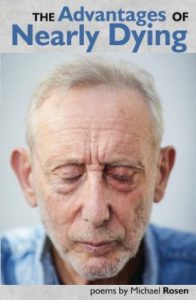 While he was in hospital, 42% of the patients on his intensive care ward died. He spent three months in hospital, of which nearly seven weeks were in an induced coma, followed by several weeks recovering in an ordinary ward and then in a Rehabilitation Hospital.
While he was in hospital, 42% of the patients on his intensive care ward died. He spent three months in hospital, of which nearly seven weeks were in an induced coma, followed by several weeks recovering in an ordinary ward and then in a Rehabilitation Hospital.
He couldn’t walk and his memory was damaged. Three years later his hearing and eyesight are still badly affected (‘I can’t hear with my left eye, I can’t see with my left ear and I get muddled’).
Following his best-selling COVID memoirs Many Different Kinds of Love: a story of life, death and the NHS and Sticky McStickstick: the friend who helped me walk again, his new collection for grown-ups records his bewilderment with what’s happened, and shares his thoughts about the politics of the pandemic – the ‘crazed incompetence’ of the Tory government and the war against the ‘Oldies’ that led to over 200,000 dead in the UK.
Unforgiving, whimsical, grim, warm, philosophical and comical, The Advantages of Nearly Dying is a book about hospital appointments, waiting-rooms, blood-tests, brain-scans, eye-tests – and a song of praise for the NHS.
Michael Rosen, an English poet, scriptwriter, broadcaster, and performer, has been writing for children since 1970. He lives in London with his wife and five children.
The Advantages of Nearly Dying
Poems by Michael Rosen
Published: 1s Paperback edition , t March 2023
Publisher: Smokestack Books
Language: English
Paperback: 220 pages
ISBN-10:1739772296
ISBN-13:978-1739772291
£8.99
• fleursdumal.nl magazine
More in: #Editors Choice Archiv, - Book News, - Bookstores, Archive Q-R, Archive Q-R, DRUGS & DISEASE & MEDICINE & LITERATURE
Thank you for reading Fleurs du Mal - magazine for art & literature